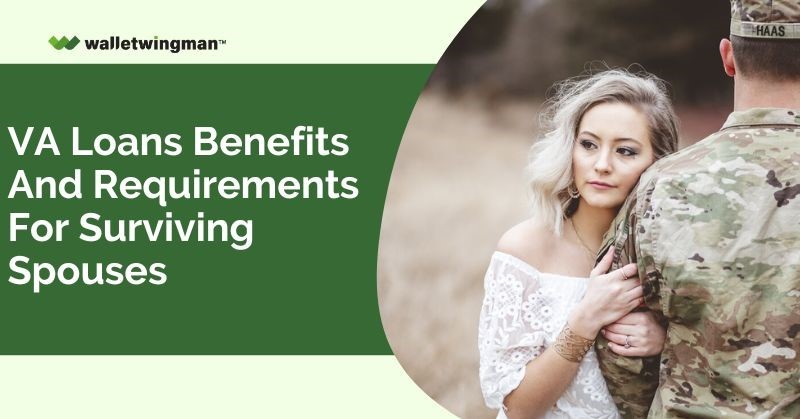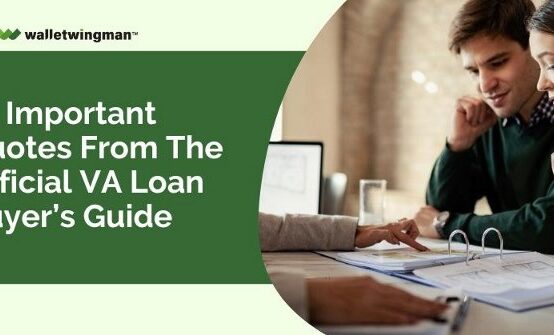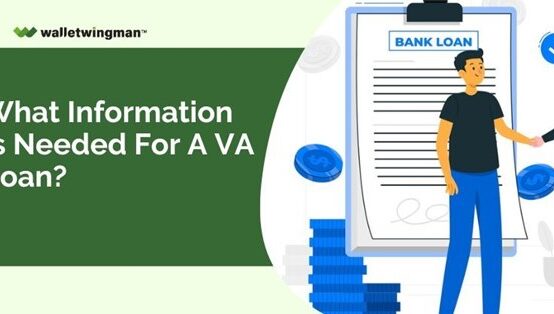The VA home loan program is most closely associated with military members and veterans who have served their country. It allows borrowers to buy a house with no down payment and without paying mortgage insurance, removing one of the biggest hurdles to homeownership.
But what many people don’t know is that certain surviving spouses of veterans are often eligible for VA loans as well and can, therefore, enjoy all of those same benefits.
The Department of Veterans Affairs has specific criteria and requirements for the spouses of veterans who want to use a VA loan. This article will clarify some requirements while explaining the many VA home loan benefits for surviving spouses.
VA loans offer numerous benefits, such as no down payment requirement and flexible qualification criteria. However, it’s also important to consider how these benefits compare to conventional loans.
VA loans offer numerous advantages over traditional loans for surviving spouses, providing them greater flexibility and financial benefits. Understanding the benefits of VA loans vs conventional can empower surviving spouses to make informed decisions about their home financing options.

What Is a VA Loan Exactly?
A VA loan is a loan that obtains a guarantee from the federal government via the U.S. Department of Veterans Affairs. This guarantee gives mortgage lenders extra protection from losses related to borrower default.
While this federal backing primarily protects lenders, it also offers many VA loan benefits for borrowers who use the VA loan program, including surviving spouses.
For one thing, borrowers can finance 100% of the home’s purchase price, eliminating the need for a down payment. VA loans also have some of the most flexible qualification criteria of any mortgage product. So, you don’t need flawless credit to qualify.
Surviving spouses who wish to use a VA loan must have sufficient income to (A) cover their monthly payments and (B) repay the obligation over time.
It’s worth noting that understanding VA business loan requirements, including credit score criteria, is crucial. Unlike some conventional loans that may require a higher credit score, VA loan requirements credit score is more flexible.
This means that you are still eligible to apply for a VA loan even if your credit score is not good. By familiarizing themselves with VA loan requirements, including credit score considerations, surviving spouses can better prepare for the home-buying process.
Now, let’s take a deeper dive by exploring the specific VA loan requirements for the surviving spouses of U.S. military veterans.

Qualification Requirements for Surviving Spouses
To qualify for the VA home loan requirements as the surviving spouse of a veteran, you will first need to get a Certificate of Eligibility (COE), which the Department of Veterans Affairs issues. This official document verifies to the mortgage lender that you are qualified for VA mortgage benefits.
To obtain a COE as a surviving spouse, at least one of the following must be true:
- The Veteran is missing in action, or
- The Veteran is a prisoner of war (POW), or
- The Veteran died while active or from a service-connected disability, and you didn’t remarry or
- The Veteran died while in service or from a service-connected disability, and you didn’t remarry before you were 57 years old or before December 16, 2003, or
- The Veteran was disabled and then died, but their disability might not have been the cause of death (in certain situations)
If at least one of these VA loan requirements applies to your situation, you are likely eligible to apply for a VA loan as the surviving spouse of a military veteran.

Receiving Dependency and Indemnity Compensation?
The Certificate of Eligibility request process can differ depending on whether or not the surviving spouse is currently receiving Dependency and Identity Compensation, or DIC.
Dependency and Indemnity Compensation (DIC) is a monthly tax-free financial advantage the VA provides to eligible survivors of service members or veterans. It’s typically awarded to spouses, dependent children, or the parents of veterans who died due to service-connected causes or while on active duty.
Receiving DIC from the Department of Veterans Affairs keeps your eligibility status for the VA home loan program the same. But it does affect the steps that are required to obtain the COE document mentioned above.
Here are the key differences:
- If you’re receiving DIC benefits
If you’re a surviving spouse to receive the Dependency and Indemnity Compensation (DIC), you must complete VA Form 26-1817, “Request for Determination of Loan Guaranty Eligibility.” This form verifies your eligibility for VA loan benefits.
Alongside the form, you’ll need to provide the Veteran’s DD214 or equivalent separation documents. This documentation can be submitted to your mortgage lender for processing or directly to the VA regional loan center in your state.
This process ensures that surviving spouses receiving DIC benefits can access the VA loan program with proper verification of their eligibility.
- If you’re not receiving DIC benefits
If you’re not getting Dependency and Indemnity Compensation (DIC) benefits, you’ll need to complete VA Form 21P-534EZ, titled “Application for DIC, Survivors Pension and/or Accrued Benefits.” This form allows you to apply for various benefits, including VA home loan eligibility, as a surviving spouse.
Alongside the form, gather essential documents such as the Veteran’s DD214 or other separation papers, their death certificate, and a copy of your marriage license to establish your relationship with the Veteran.
Submit these documents to the VA pension management center in your state for processing. If you require help or have inquiries regarding your application, don’t hesitate to contact the VA for guidance throughout the process.
Note: If you’re working with a VA-approved mortgage lender, they should be able to help you with all of these documentation requirements. You don’t have to do it all on your own! Your mortgage lender can assist you in obtaining your Certificate of Eligibility and expedite the loan process.

Next Steps in the Home Buying Process
From here, the rest of the mortgage process unfolds just as it would with any other type of home loan.
Surviving spouses who qualify for the VA loan spouse requirements get pre-approved by a lender to determine a maximum mortgage amount. This allows you to narrow your home search to a specific price range, increasing your chance for success.
Once you find a house that meets your needs and falls under your budget, you can make an offer and negotiate the final sale price with the seller.
VA loan appraisals are comprehensive assessments conducted by certified appraisers with specific expertise in evaluating properties for VA loans. Apart from determining the property’s current market value, these appraisals also aim to verify that the home meets the minimum VA loan inspection requirements.The closing process represents the final step in the VA loan process for veteran’s spouses. This is where you sign all of the finalized paperwork relating to the sale, pay your closing costs, and receive the keys to your new home.
These requirements are designed to ensure that the property is safe and suitable for occupancy. During the appraisal process, the appraiser examines various aspects of the selected property, including its structural integrity, safety features, and overall condition.
They assess the home’s systems, such as plumbing, electrical, heating, and cooling, to confirm that they are in good working order. Additionally, the appraiser checks for any visible signs of damage or hazards that could pose risks to occupants.
Furthermore, the appraiser considers factors such as the property’s location, size, and amenities to determine its marketability and potential resale value. They also compare the selected property to similar homes in the area to gauge its competitiveness in the local real estate market.
If the property qualifies the VA’s minimum property requirements and its appraised value aligns with the proposed purchase price, the appraisal serves as a green light for the loan process to proceed. However, if the property fails to meet these standards or if the appraised value is lower than the agreed-upon purchase price, additional steps may be necessary.
In such cases, both the seller and the purchaser may need to renegotiate the terms of the sale, address any required repairs or improvements, or seek an appeal of the appraisal findings.
By adhering to stringent standards and guidelines, VA appraisals provide peace of mind to all parties involved, helping to safeguard the interests of both the borrower and the lender throughout the home-buying process.
The closing process represents the final step in the VA loan process for Veteran’s spouses. This is where you sign all of the finalized paperwork relating to the sale, pay your closing costs, and receive the keys to your new home.


 How to Buy a Condo Unit with a VA Mortgage Loan
How to Buy a Condo Unit with a VA Mortgage Loan  How Credit Scores Affect Mortgage Rates on a VA Loan
How Credit Scores Affect Mortgage Rates on a VA Loan  How Much Can I Borrow When Using a VA Loan to Buy a House?
How Much Can I Borrow When Using a VA Loan to Buy a House?  10 Important Quotes from the Official VA Loan Buyer’s Guide
10 Important Quotes from the Official VA Loan Buyer’s Guide  What Information Is Needed for a VA Loan?
What Information Is Needed for a VA Loan?  How to Avoid Mortgage Insurance By Using a VA Loan
How to Avoid Mortgage Insurance By Using a VA Loan 